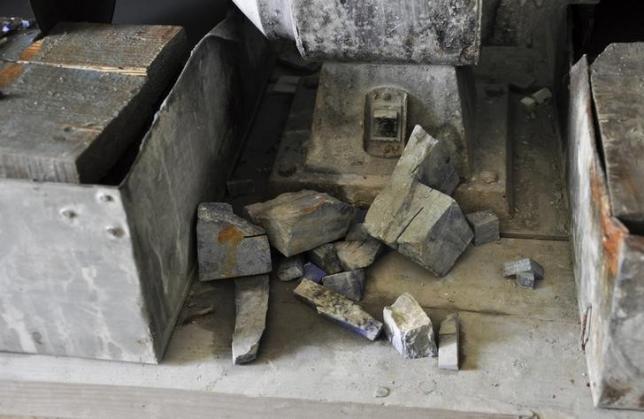Afghanistan aims to choke Taliban smuggling funds with gemstone bourse
MELBOURNE: Afghanistan aims to deprive Taliban militants of funds from smuggled exports of the prized blue gemstone, lapis lazuli, by creating its own bourse to sell the stone, which has been traded for thousands of years in the Hindu Kush mountains.
The Taliban is increasingly financed by criminal enterprises such as smuggling gemstones like lapis, rubies, emeralds, as well as heroin laboratories and kidnapping.
Afghanistan loses roughly $100 million a year through gemstone smuggling, more than the total exports of commodities like coal and industrial minerals like talc, said the country's mining minister.
"It's a big issue for the people of Afghanistan, because they are losing their property to groups of terrorists which on one side are stealing our property and on the other side are strengthening their terrorist group. So it's a lose-lose situation," said mines minister Daud Saba told Reuters.
Halting smuggling of emeralds, rubies, jade and other material would be tough, he said, but lapis lazuli trade can be controlled as the stone with unique qualities comes from one mine, Sar-i-Sang, in northern Afghanistan.
The government is working to set up a bourse in Kabul by mid-2016 as a single source for lapis lazuli, which would come with a government certificate.
"We have the monopoly on that type of lapis. That stone has a signature," Saba said in an interview on the sidelines of a mining conference in Melbourne on Wednesday.
"And then any other lapis with no certificate should be banned by the international community, as they have done with blood diamonds," Saba said.
Blood diamonds are diamonds mined in conflict areas and sold to fund those wars. The United Nations sought to ban trade in conflict diamonds, which led to a certification program in 2003. The diamond industry says that since then blood diamonds now make up less than one percent of the diamond trade.






